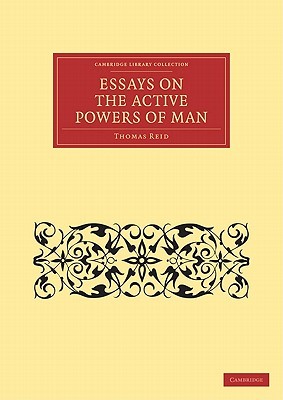
- We will send in 10–14 business days.
- Author: Thomas Reid
- Publisher: Cambridge University Press
- ISBN-10: 1108124690
- ISBN-13: 9781108124690
- Format: 21 x 29.7 x 2.6 cm, minkšti viršeliai
- Language: English
- SAVE -10% with code: EXTRA
Reviews
Description
The Scottish philosopher Thomas Reid (1710-1796) first published Essays on Active Powers of Man in 1788 while he was Professor of Philosophy at King's College, Aberdeen. The work contains a set of essays on active power, the will, principles of action, the liberty of moral agents, and morals. Reid was a key figure in the Scottish Enlightenment and one of the founders of the 'common sense' school of philosophy. In Active Powers Reid gives his fullest exploration of sensus communis as the basis of all philosophical inquiry. He uses common sense realism to argue for the existence of a stable external world, the existence of other minds, and to offer a powerful challenge to versions of the Theory of Ideas advocated by Hume (1711-1776) and Locke (1632-1704). This is a key work of the Scottish Enlightenment that made important contributions to fundamental debates about the basis of philosophical inquiry.
EXTRA 10 % discount with code: EXTRA
The promotion ends in 23d.03:00:13
The discount code is valid when purchasing from 10 €. Discounts do not stack.
- Author: Thomas Reid
- Publisher: Cambridge University Press
- ISBN-10: 1108124690
- ISBN-13: 9781108124690
- Format: 21 x 29.7 x 2.6 cm, minkšti viršeliai
- Language: English English
The Scottish philosopher Thomas Reid (1710-1796) first published Essays on Active Powers of Man in 1788 while he was Professor of Philosophy at King's College, Aberdeen. The work contains a set of essays on active power, the will, principles of action, the liberty of moral agents, and morals. Reid was a key figure in the Scottish Enlightenment and one of the founders of the 'common sense' school of philosophy. In Active Powers Reid gives his fullest exploration of sensus communis as the basis of all philosophical inquiry. He uses common sense realism to argue for the existence of a stable external world, the existence of other minds, and to offer a powerful challenge to versions of the Theory of Ideas advocated by Hume (1711-1776) and Locke (1632-1704). This is a key work of the Scottish Enlightenment that made important contributions to fundamental debates about the basis of philosophical inquiry.


Reviews